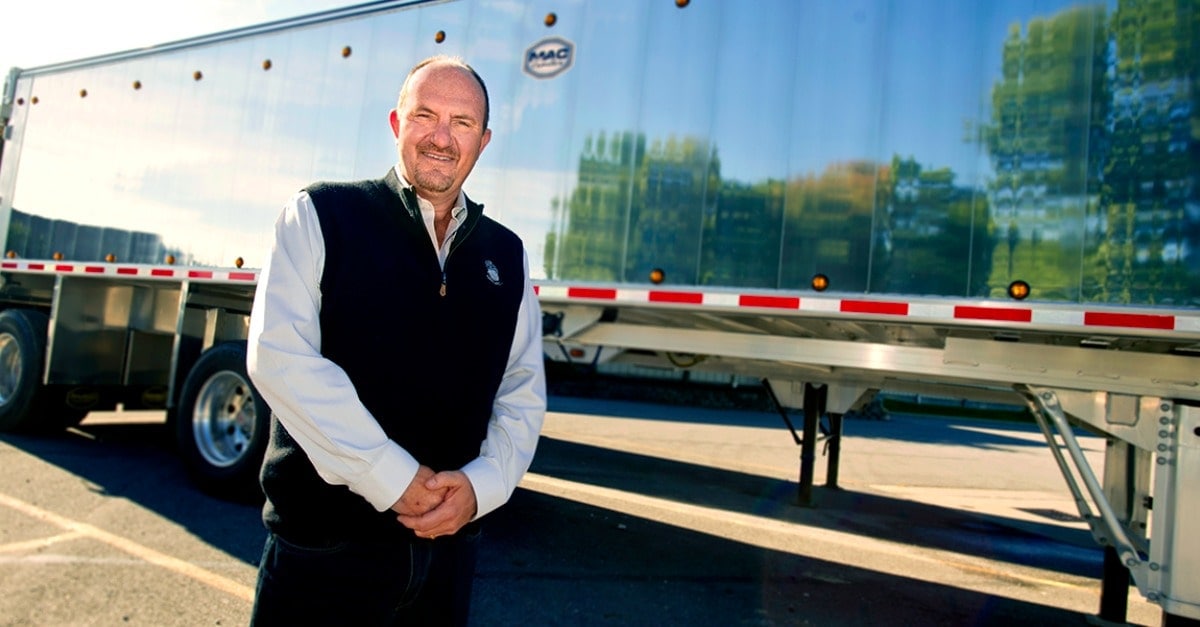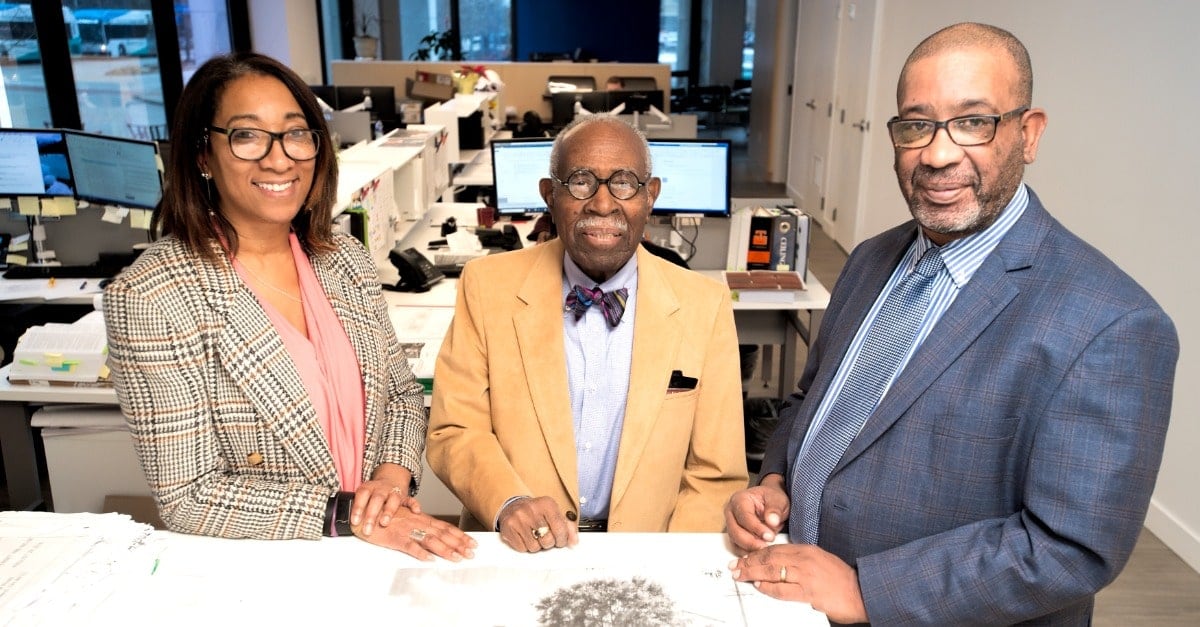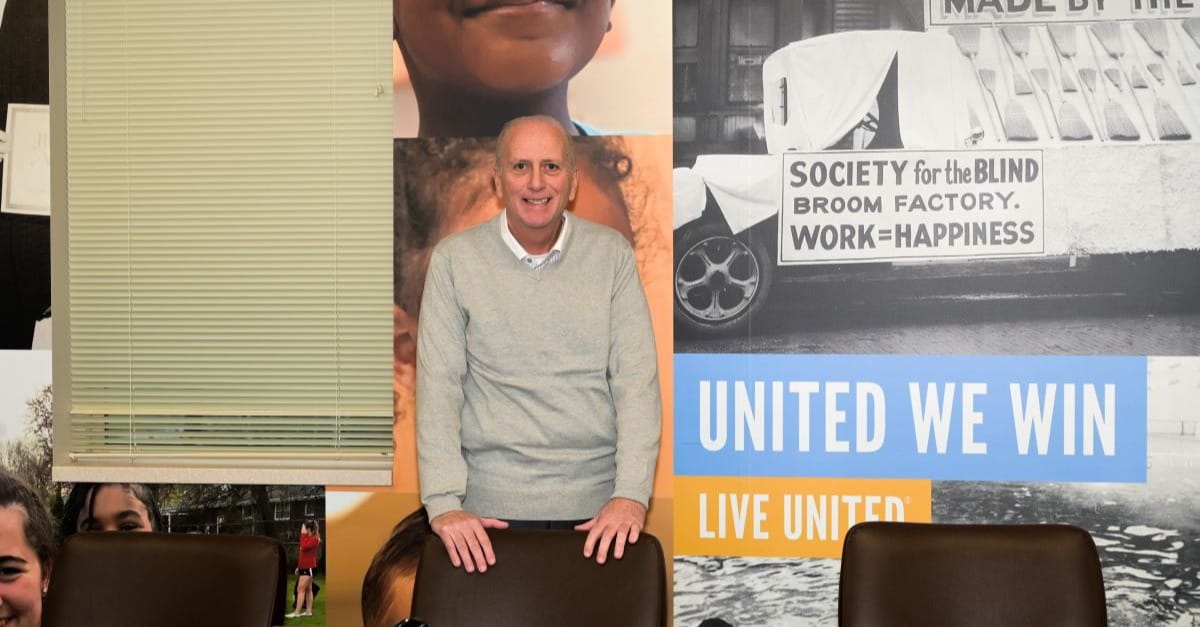With humble beginnings 25 years ago in an empty one-bay garage, Michael A. Conny started repairing trailers with a used welding machine. Since then, through hard work, visionary innovation and strategic expansion, he has grown MAC Trailer Enterprises Inc. into a leading trailer manufacturer, and parts and service provider with 1,300 employees and eight plants across the country.
But before he became founder and president of MAC Trailer, Conny worked two jobs—milking cows on his father’s dairy farm in the early morning, working for a nearby trailer company as a welder during the day, then milking cows again each night.
“I was a hardworking young man, and I had a vision of working for myself,” Conny says. “That’s all I really wanted to do.”
At age 25, Conny borrowed $8,000 from his mother to buy a welding machine and rent a one-bay garage. His quality of craftsmanship soon attracted a following of customers, and within seven months, he had hired 10 employees to keep up with demand.
When he launched the business in Alliance, Ohio, Conny had no idea how much growth potential the market held. But over time, he identified endless opportunities to set his growing company apart.
“I had no idea how big the transportation industry was,” he says. “I guess I got a little lucky.”
Family of four
MAC Trailer’s growth was more intentional than just luck. Early on, Conny identified ways to grow the company by expanding into new market segments.
MAC Trailer’s original focus was making and repairing aluminum dump trailers, which Conny knew well from his previous job as a welder. But then, he says, “I started to see that I needed more product lines to grow MAC Trailer, so I looked at what else I could build out of aluminum.”
Conny’s second product line was refuse trailers to haul trash. Next came aluminum flatbed trailers. Then, in 2008, he introduced a line of liquid and dry tank trailers, completing what he calls the “family of four.”
“I grew the business by looking at every segment of the market and looking at the competitors out there to see where there was room for a new player,” he says. “I said to myself, ‘If I can get 30 percent of this market, I would have a very viable business.’”
Today, the company operates four manufacturing plants in Ohio (with locations in Alliance, Kent and Salem), two in Oklahoma, one in Texas and one in Montana. The company also operates MAC Service Inc., which continues Conny’s early work experience repairing damaged trailers, and MAC Trailer Aftermarket Parts Inc., which maintains an extensive inventory of parts and components for the company’s products.
By diversifying into these related markets, Conny has expanded MAC Trailer while bolstering the business against ebbs and flows in each segment.
“Aftermarket parts is a segment of the company that I never realized I would have,” he says. “I didn’t realize that, sooner or later, all these trailers I’m building would need parts. Every year, we build 5,000 to 6,000 trailers, and every year, those trailers are getting older and need more parts. Even in slow times when manufacturing isn’t as busy, we’re still selling parts.”
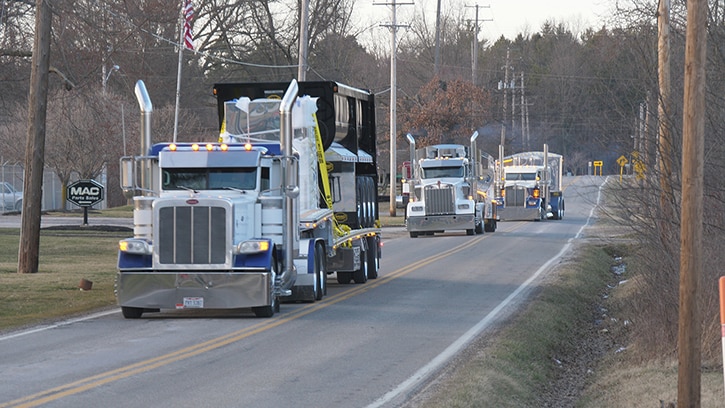
A caravan of MAC Trailer Enterprises trailers.
(Photo by David Richard)
Train your own
Now that MAC Trailer’s product lines have reached Conny’s initial goal of 30 percent of market share, he’s shifting his goals to 40 percent and pushing the company toward new levels of growth.
“We’re continuing to gain market share,” Conny says. “Once you start to sell a high-end, high-quality product, it starts to sell itself. So we’re seeing rapid growth at MAC Trailer because of the past 25 years of building good products—and that makes me proud.”
The company’s continued growth is a result of Conny’s simple formula for success, which starts with good people and ends with good products.
“When you have a competitively priced product, the best engineering and the best people the industry can deal with, it will result in success,” he says.
Training is a key component of developing people and products in this industry. MAC Trailer begins by training its labor force to weld the way that the company is distinctively known for welding. Through an extensive in-house training program, the company teaches welding from the ground up—no prior welding experience necessary, although MAC also hires experienced welders.
By investing in growing his employees, Conny has developed a skilled, loyal workforce that invests in the company’s growth.
“If you look at my senior management, we all started from the bottom in this industry. All of those people have grown with my company, and that creates a very strong team,” Conny says, citing virtually no turnover and tenure exceeding 20 years for several employees. “If you can continue to grow your company, you can continue to grow the people who work for you. Good people stay with growing companies. When a company starts to lose its top people, it’s no longer growing.”
Growing customers’ businesses first
Whether introducing new product lines or opening new manufacturing plants, every decision that Conny makes to grow MAC Trailer is fueled by one goal: to better serve customers’ needs.
“My philosophy is to listen and learn from our customers and pursue continuous improvement through strong leadership and dedicated employees, while providing added value in our product,” Conny writes on the company website.
This customer-centric approach drives the company’s ongoing quest for quality products and service, as Conny pushes his team—not to make MAC Trailer more competitive, but to make MAC Trailer’s customers more competitive.
“I demand engineering features that help our end users make more money with our product,” he says.
For example, the company recently patented a tank trailer with a double-wall pressurized tank made from thinner, lighter materials, resulting in a trailer that weighs 1,600 pounds less than competing trailers on the market. This innovation allows customers to haul 1,600 more pounds of payload using MAC Trailer’s product.
As this example illustrates, MAC Trailer is committed to advancing the design of its trailers to provide operational benefits that help customers improve fuel economies, maximize performance, increase payloads and generate greater profits.
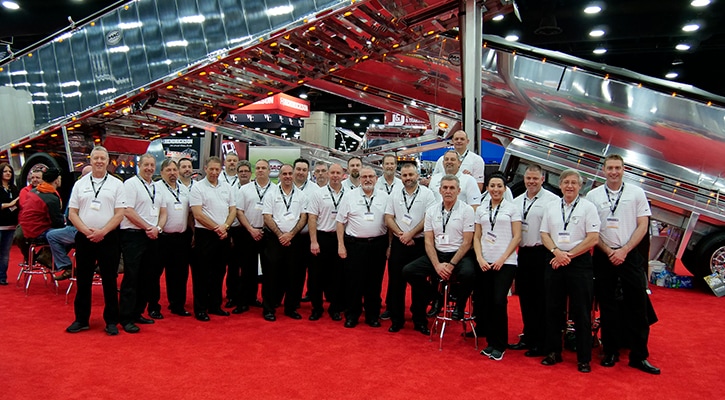
Employees of MAC Trailer Enterprises
(Photo by David Richard)
Better together
Ten years ago, for the first time in its history, MAC Trailer found itself in the red. As critical as it was to employ good people and produce good products, Conny realized that he needed a strong relationship with a reliable bank to finance his growth in hard times.
“When the economy failed in 2008, our company was in the negative for the first time. I needed support from a new bank to get through a very difficult economy, and Huntington understood that,” he says.

